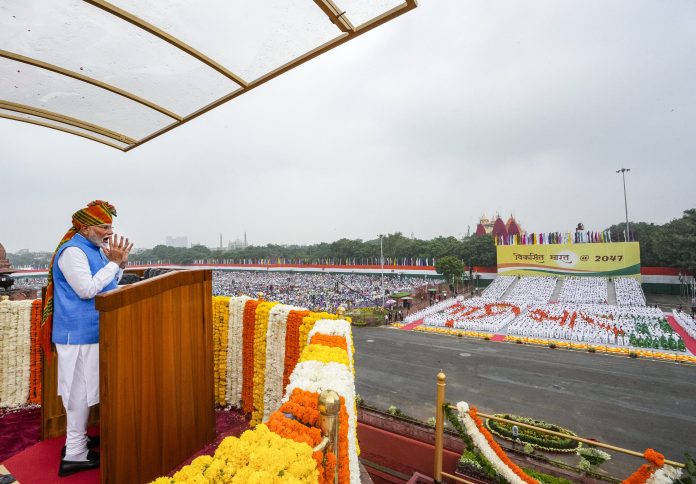NEW DELHI, Aug 15: Prime Minister Narendra Modi on Thursday made a strong pitch for ‘one nation, one election’ and urged political parties to come forward to realise the dream while contending that frequent polls were creating hurdles in the country’s progress.
Addressing the nation on the 78th Independence Day, he said extensive consultations have been held across the country on the issue and all political parties have given their views. A committee, he added, has submitted an excellent report.
“Frequent elections are creating hurdles in the progress of the nation. It has become easy to link any scheme/initiative with elections. There are elections somewhere every three to six months. Every work is linked to elections,” Modi said from the ramparts of the Red Fort.
“The nation has to come forward for one nation, one election,” he said.
The prime minister urged political parties “from the Red Fort and with the national tricolour as a witness to ensure the nation’s progress”.
He also asked parties to ensure that national resources are used for the common person and said, “We have to come forward to realise the dream of one nation one election.”
‘One nation, one election’ is one of the key promises made by the BJP in its manifesto for the Lok Sabha elections.
A high-level panel headed by former president Ram Nath Kovind in March this year recommended simultaneous elections for the Lok Sabha and state assemblies as the first step followed by synchronised local body polls within 100 days.
Simultaneous polls will help save resources, spur development and social cohesion, deepen “foundations of democratic rubric” and help realise the aspirations of “India, that is Bharat”, the panel said in its report.
Separately, the Law Commission is likely to recommend holding simultaneous polls for all three tiers of government — Lok Sabha, state assemblies and local bodies like municipalities and panchayats — starting with 2029 and a provision for unity government in cases like hung house or no-confidence motion.
The Kovind panel has not specified any period for rolling out simultaneous polls.
It has proposed creation of an ‘Implementation Group’ to look into the execution of the panel’s recommendations.
The panel recommended as many as 18 constitutional amendments, most of which will not need ratification by state assemblies. However, these would require certain Constitution amendment bills that would need to be passed by Parliament.
Trending Now
E-Paper


